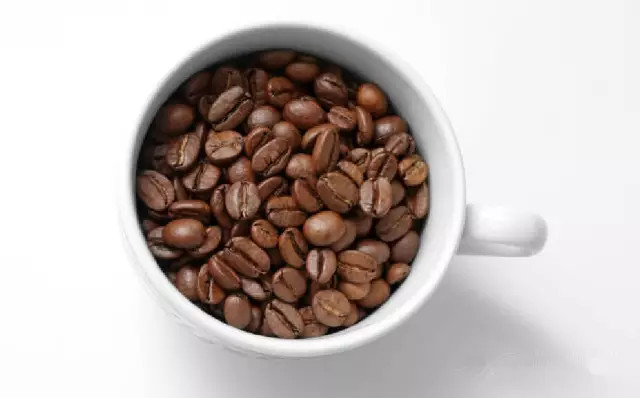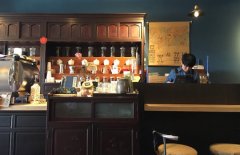Benign interaction between people: direct Trade between hygge and Coffee in Denmark

For professional baristas, please follow the coffee workshop (Wechat official account cafe_style)
The Danish word "hygge" has become very popular in recent years because of the way of life behind it.
What is "hygge"?
"hygge" is Danish, which means "comfortable, comfortable". " The word "hygge" first appeared in Norwegian, and it is close to the meaning of the word "cosiness" in English.
However, when we use it now, we usually no longer translate it, but take it directly from the Danish to explain and express a kind of relaxation and closeness to nature that is unique to Scandinavia, especially Danish culture. and promote a happy life concept and way of life.
"hygge" in Coffee philosophy
About three years ago, the word "hygge" came into widespread use. In British bookstores, there are ubiquitous books on the "hygge" way of life, along with books on Danish tourism, which associate the country with high-quality lifestyles and tastes.
In fact, however, the lifestyle promoted by "hygge" is very simple and has no fixed pattern. As long as you personally think of a comfortable and happy life and the way of making friends, you can be included in the "hygge" list. However, because of the Danes' nationality and geographical location, for example, the winter nights in Denmark are very long, and they also like to light candles at home, so the details of life can be regarded as "hygge". Danes like to drink coffee and chat with family and friends, which they think is "hygge". When summer comes, Danish families like to roast marshmallows on charcoal fire when they travel to the seaside. They also think that this is a unique "hygge" life for Danes.
After I contacted Peter N, the founder and operator of Coffee Collective, one of the largest coffee chains in Denmark. Dupont). Peter told me that coffee plays an extremely important role in the daily communication and life of Danes.
When Peter and his companions founded the coffee brand in 2007, their idea was simple: they wanted to create a transparent direct trade model in the coffee industry. They want to go to the coffee bean farm to pick coffee beans and make sure that every cup of coffee they make is kept at a high level. Ten years later, they found that everyone's love for Danish coffee is not only because of the quality of coffee itself, but also from the association and yearning for "hygge" life.
Direct trade
Will "direct trade" bring fair services to the country of origin of coffee?
But to my curiosity, on the website of his coffee brand, they mentioned the concept of "Direct Trade" and replaced Fair Trade (Fair Trade). Peter said that they adopt the practice of 'direct trade': every year, the main operators personally visit coffee bean suppliers and manufacturers in order to pay them directly and to ensure that they can personally select better quality coffee beans.
Although, Peter says, their business model, which deals directly with coffee manufacturers, guarantees a 25% higher price to coffee bean suppliers than the "fair trade" model. But coffee-producing countries, such as Ethiopia, Kenya and Brazil, still face the negative impact of climate change on their coffee exports.
Most of the countries that export coffee beans are in Africa and Central and South America. For a long time, although one of the principles of "fair trade" is to ensure that workers' wages and working conditions are guaranteed. However, there are still some problems such as the use of child labor and poor working conditions in some areas. When I asked Peter if he found any of the problems mentioned above when he visited the coffee bean maker every year.
Peter said he did see the difficult working conditions of the workers on the coffee bean farm during his inspection. So he believes that promoting "direct trade" will benefit workers in coffee-producing countries more than "fair trade". They hope to directly understand and care about the working conditions of the workers through field visits to the factory.
In the hygge culture I have come into contact with, I have found that the positive interaction between people advocated by the Danes is the core idea of the hygge way of life. When we are used to using social tools to communicate with others, maybe we can learn from the Danish hygge lifestyle, that is, we can put down our phones, have a cup of coffee with friends and family, spend time with each other, and listen attentively to each other's conversation.
It is not difficult to have some sincere communication and happy experience, maybe you can get it with a cup of coffee.
Important Notice :
前街咖啡 FrontStreet Coffee has moved to new addredd:
FrontStreet Coffee Address: 315,Donghua East Road,GuangZhou
Tel:020 38364473
- Prev

The robot "Pepper" of Softbank Corp. Company in Japan can remember customers' coffee preferences.
Tokyo, July 21 (Xinhua)-- SoftBank Robotics (Tokyo Metropolitan Port area), a robot owned by Softbank Corp. Company of Japan, began an experiment on the 19th, using the humanoid robot PePPer to provide free coffee to customers, according to Japan's Newsletter. Peppe
- Next

Raise pro-Yuan coffee | there is a strong father-daughter relationship when selling coffee in a traditional Chinese medicine company.
Exchange of professional baristas Please follow the coffee workshop (official Wechat account cafe_style) to turn its traditional Chinese medicine company into a cafe. It is not a stunt of Wenqing, but has strong feelings and memories of father and daughter. He Xinglin, the owner of Yuan Coffee, has been in the medicine business for four generations, but no one has inherited the mantle in the fifth generation. I think it's a pity that our cousins have been playing in the traditional Chinese medicine industry since childhood.
Related
- What is the difference between Indonesian Sumatra Mantinin coffee and gold Mantinin? How to distinguish between real and fake golden Mantelin coffee?
- What does bypass mean in coffee? Why can hand-brewed coffee and water make it better?
- Unexpected! Ruixing Telunsu lattes use a smoothie machine to foam milk?!
- % Arabia's first store in Henan opens into the village?! Netizen: Thought it was P's
- Does an authentic standard mocha coffee recipe use chocolate sauce or powder? Mocha Latte/Dirty Coffee/Salty Mocha Coffee Recipe Share!
- What is the difference between Vietnam egg coffee and Norway egg coffee? Hand-brewed single product coffee filter paper filter cloth filter flat solution!
- What is the difference between sun-cured and honey-treated coffee? What are the differences in the flavor characteristics of sun-honey coffee?
- How to make Italian latte! How much milk does a standard latte use/what should the ratio of coffee to milk be?
- How to make butter American/butter latte/butter Dirty coffee? Is hand-brewed coffee good with butter?
- Is Dirty the cold version of Australian White? What is the difference between dirty coffee/decent coffee and Australian white espresso?

